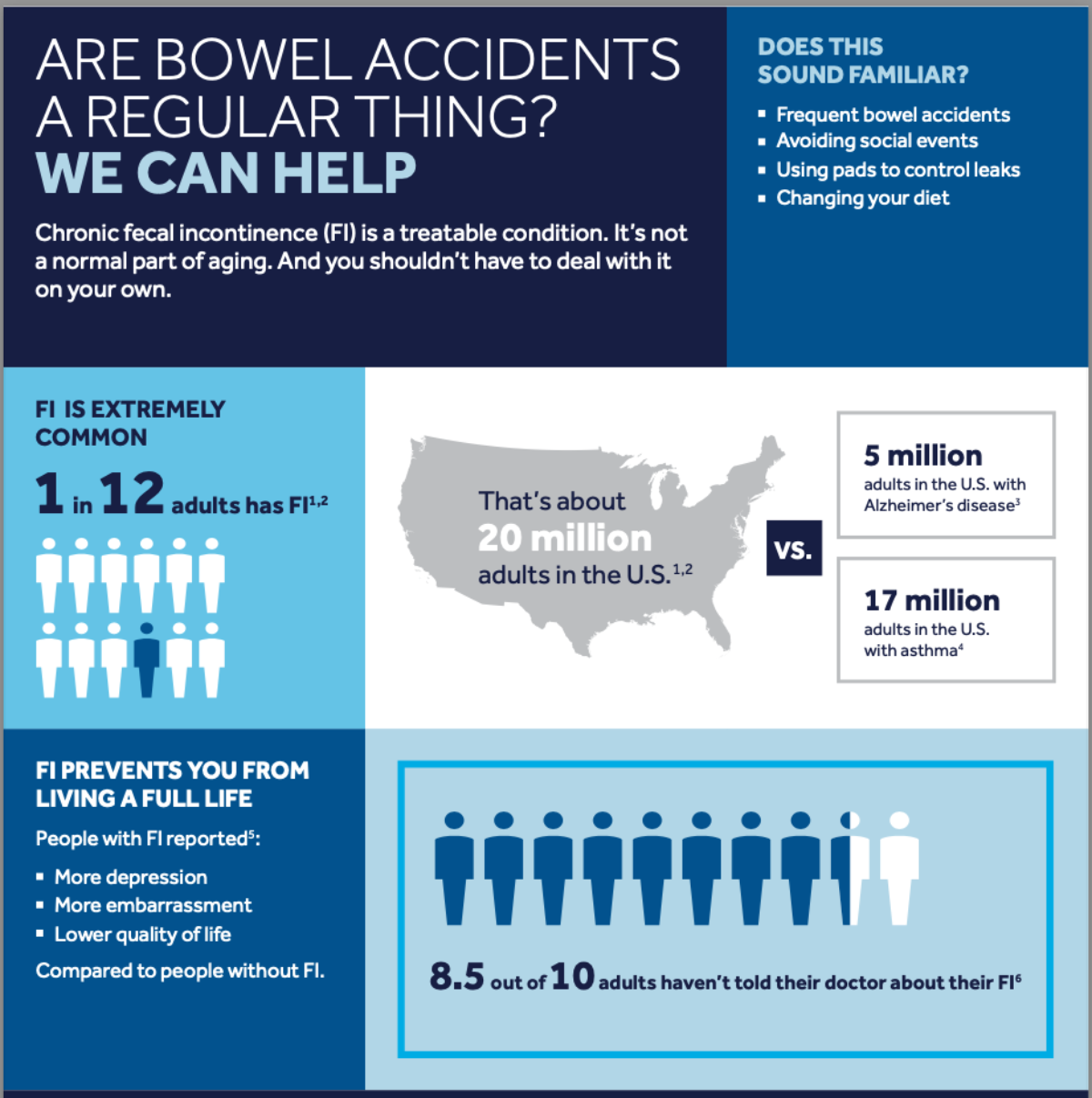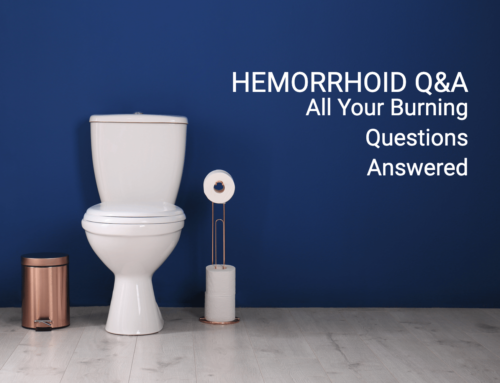If you’re one of the millions of people affected by bowel control problems, it’s time to speak up. Fecal incontinence, or accidental bowel leakage, is the inability to control gas, liquid or solid stool. It’s a pelvic floor disorder which leads to the inability to contract and sustain a contraction of the pelvic floor muscles. Symptoms include stool leakage and difficulty making it to the bathroom in time.
“Pelvic floor disorders can cause a number of symptoms, but the most bothersome tend to be problems controlling the retention or evacuation of urine or stool,” says Daniel Stanley, MD, fellowship trained colorectal surgeon with University Surgical Associates. “In most cases, there’s nothing wrong with the colon itself. It’s typically the muscles or nerves to the anus that aren’t working like they should, which can be incredibly frustrating and potentially embarrassing.”

TREATMENT OPTIONS FOR FECAL INCONTINENCE
There are a number of effective treatment options for fecal incontinence – including medication, increasing fiber intake, over the counter supplements, pelvic floor physical therapy and fecal incontinence surgery – that can help provide relief. To determine which approach is right for you, it’s important to work with a pelvic floor specialist like Dr. Stanley, who treats fecal incontinence, obstructive defecation, vaginal vault prolapse and other conditions. Many times treatment for one of these conditions will also improve urinary incontinence symptoms as well.
“Sphincteroplasty is a fecal incontinence surgery used to repair the anal sphincter, which can become injured or broken due to a number of reasons including an episiotomy during childbirth, chronic constipation and straining, nerve damage or a previous colorectal surgery. Even if the sphincter was properly repaired years ago, scar tissue can weaken over time and not hold together as a circle, leading to bowel control issues,” Dr. Stanley says. “Surgery for bowel incontinence is an outpatient procedure that requires a two-inch incision between the legs and has an overall recovery time of six weeks with some activity restrictions.”
Another minimally invasive option for accidental bowel leakage is a sacral nerve stimulator (SNS), a small system surgically placed under the skin that sends mild impulses to the nerve located just above the tailbone through an electrode. These sacral nerves activate or inhibit muscles and organs that contribute to incontinence. In the last 10 years, SNS has become the most common procedure used to treat fecal incontinence.
“Fecal incontinence can drastically affect a person’s quality of life because they can’t gauge when and how often they need to go to the bathroom. The sacral nerve stimulator is an effective option that requires a small incision near the hip and the device is inserted just beneath the skin. It can provide a 50-90 percent improvement in symptoms, helping people get back to living a normal lifestyle – whether that’s at work or play.”
HAVE THE CONVERSATION
Even though fecal incontinence may be difficult to discuss, it’s important to talk with your primary care physician or make an appointment with a specialist who can help. If you don’t share what’s happening, it’s impossible to find the right solution. And that means continuing to live with embarrassing, uncomfortable symptoms. In some cases, Dr. Stanley may work with other specialists to develop a coordinated treatment plan and help you find relief.
“Fecal incontinence is a very treatable problem that’s not just a consequence of aging – it’s the result of damage to your organs, muscles and nerves. And if you have more than one problem like fecal and urinary incontinence that’s not resolved with the treatments available at USA, I’ll work directly with your gynecologist or urologist to create a tailored treatment plan,” says Dr. Stanley. “As an expert in fecal incontinence, my job is to stay at the forefront of the latest treatment options and cutting-edge technologies to offer comprehensive, individualized and effective care.”
Help – Personalized for You

Even if accidental bowel leakage isn’t the problem you’re facing, there are many conditions the experienced colorectal surgeons at USA treat with a range of therapies tailored to your specific needs. This includes pelvic pain, hemorrhoids, ulcerative colitis, anal fissures, diverticular disease, and colon and rectal cancer treatment. USA also offers colonoscopy screenings.
Schedule an appointment by calling 423.267.0466.







The best part of your blog for me is when you said that you can find a solution to your problem with fecal incontinence when you see a primary care physician or make an appointment with a specialist who can help. This is something that I will share with a close friend of mine who has been dealing with the signs of fecal incontinence for the past 8 weeks. She wants to seek help from a reliable professional so she can restore the quality of her life, so it will make sense for her to do your tips.